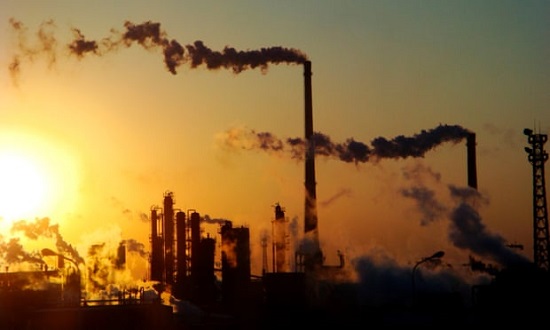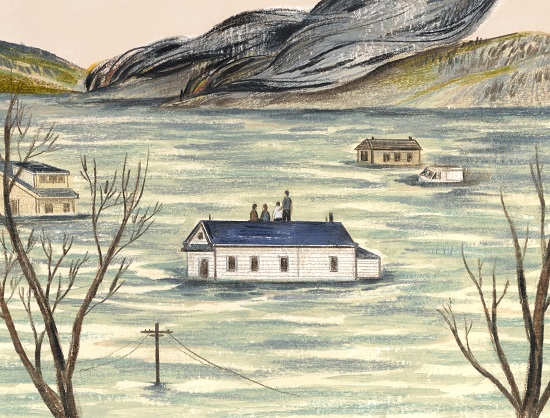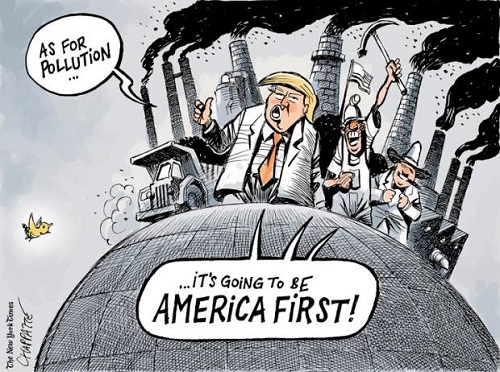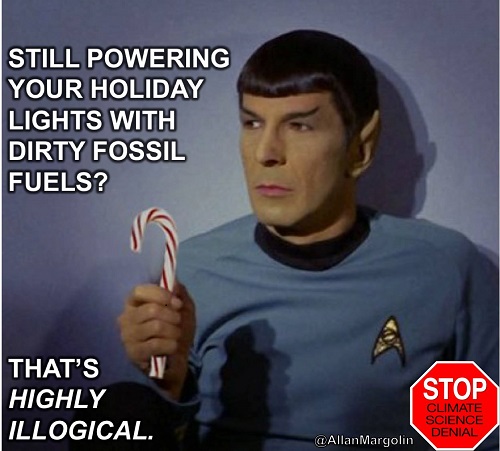2018 SkS Weekly Climate Change & Global Warming Digest #50
Posted on 16 December 2018 by John Hartz
Story of the Week... Editorial of the Week... Toon of the Week... Coming Soon on SkS... Poster of the Week... SkS Week in Review...
Story of the Week...
UN climate accord 'inadequate' and lacks urgency, experts warn
Agreement will fail to halt devastating rise in global temperature, say scientists

The two-week-long conference left questions about reducing greenhouse gas emissions unanswered. Photograph: Ryan Tong/EPA
The world has been put on notice that its best efforts so far will fail to halt the devastation of climate change, as countries came to a partial agreement at UN talks that failed to match up to the challenges faced.
Leading figures in climate science and economics said much more must be done, and quickly, to stave off the prospect of dangerous levels of global warming.
Nicholas Stern, the former World Bank chief economist and author of a seminal review of the economics of climate change, said: “It is clear that the progress we are making is inadequate, given the scale and urgency of the risks we face. The latest figures show carbon dioxide emissions are still rising. A much more attractive, clean and efficient path for economic development and poverty reduction is in our hands.”
Johan Rockstrom, director designate at the Potsdam Institute for Climate Impact Research, said: “My biggest concern is that the UN talks failed to align ambitions with science. We continue to follow a path that will take us to a very dangerous 3-4C warmer world within this century. Extreme weather events hit people across the planet already, at only 1C of warming.”
UN climate accord 'inadequate' and lacks urgency, experts warn by Fiona Harvey, Environment, Guardian, Dec 16, 2018
Editorial of the Week...
John Kerry: Forget Trump. We All Must Act on Climate Change.
If we fail, it won’t be just the president’s fault.

Future generations will measure us by whether we acted on facts, not just debated or denied them. The verdict will hang on whether we put in place policies that will drive the development and deployment of clean technologies, re-energize our economies, and tackle global climate change. Every day that goes by that we’re paralyzed by the Luddite in the White House is a day in the future that our grandchildren will suffer. That’s not hyperbole — that’s science.
Instead of tacitly accepting that inaction is preordained for the remaining two years of the Trump presidency, Congress should send Mr. Trump legislation addressing this crisis. It will force him to make choices the American people will long remember: Will he say no to deploying solar technology that would turn the American West into the Saudi Arabia of solar? No to turning the Midwest into the Middle East of wind power? No to a manufacturing revolution that could put West Virginia back to work in ways that his beloved coal never will?
Make him choose — and let’s find out.
Forget Trump. We All Must Act on Climate Change., Opinion by John Kerry, New York Times, Dec 13, 2018
Toon of the Week...

Coming Soon on SkS...
- Explainer: Why some US Democrats want a ‘Green New Deal’ to tackle climate change (Zeke Hausfather)
- Little Ice Age? No, try Big Warming Age (Dana)
- New findings on ocean warming: 5 questions answered (Scott Denning)
- Climate carbon bookkeeping (Evan)
- New research this week (Ari)
- 2018 SkS Weekly Climate Change & Global Warming News Roundup #51 (John Hartz)
- 2018 SkS Weekly Climate Change & Global Warming Digest #51 (John Hartz)
Poster of the Week...

SkS Week in Review...
- 2018 SkS Weekly Climate Change & Global Warming News Roundup #50 by John Hartz
- New research, December 3-9, 2018 by Ari Jokimäki
- The Security & Sustainability Guide, Guest post by Michael Sales, Michael Marien, & David Harries
- Like health care, climate policy could tip elections by Dana Nuccitelli (Yale Climate Connections)
- Australia - Moving to Renewable Energy by Riduna
- 2018 SkS Weekly Climate Change & Global Warming Digest #49 by John Hartz































 Arguments
Arguments






























Don't mean to nitpick, but in the article "UN climate accord 'inadequate' and lacks urgency, experts warn" there is the statement, "The latest figures show carbon dioxide emissions are still rising." This is, of course, correct, but the more urgent message is that atmospheric CO2 concentrations are not just increasing, but they are accelerating upwards. In time the oceans will likely begin taking up less carbon and the biosphere will begin releasing more carbon as positive feedbacks kick in. So although agreements are written to regulate emissions, those interested in monitoring how we're doing should use atmospheric CO2 levels as a better metric of how we're doing, because in the end analysis it is CO2 concentrations that will determine how climate changes, and not emission rates. I realize that the only things we can effectrively regulate are emissions, but because scientists themselves are uncertain about ocean uptake rates and the point where positive feedbacks will kick in, we must always be looking at the Keeling curve (curve of atmospheric CO2 concentrations) as an indication of just how well we're doing.
I would be interested to know how long after a sustained drop, or levelling off in emissions (say ten years) before this would show up in the keeling curve?
As far as it goes, the Paris Accord us a good beginning but among the questions it did not address was how we will handle a population increase of 2 billion by 2050, or the effect of that increase on the environment and greenhouse gas emissions. We need to curb population growth now – or be prepared to see a large portion of that increase perish due to lack of essential amenities.
More importantly – and pressing – is the need to independently monitor the source of our greenhouse gas emissions because the time will come – in the not too distant future – when it may become necessary to impose international trade and financial sanctions on those responsible for the highest emissions.
The alternative is to accept the ‘inevitability’ of global warming which triggers destructive climate change, impairment of carbon sinks and uncontrollable methane emissions from the Arctic. Either countries like Russia and China, India and the USA reduce their carbon emissions in a timely manner to levels which avoid such threats or they are compelled to do so.
My guess is that resort to sanctions will not be necessary once the effects of dangerous climate change are observed. Unfortunately it may then be too late to avert their further development, resulting in catastrophic outcomes. So, the sooner major emitters are ‘encouraged’ to rapidly reduce their emissions and control population growth, the better.
Blind creature that buries head in sand named after Donald Trump. A newly discovered blind and burrowing amphibian is to be officially named Dermophis donaldtrumpi, in recognition of the US president’s climate change denial.
The name was chosen by the boss of EnviroBuild, a sustainable building materials company, who paid $25,000 (£19,800) at an auction for the right. The small legless creature was found in Panama and EnviroBuild’s Aidan Bell said its ability to bury its head in the ground matched Donald Trump’s approach to global warming.